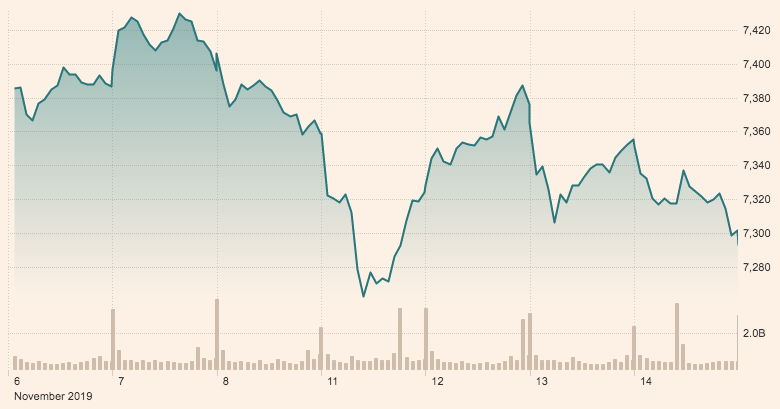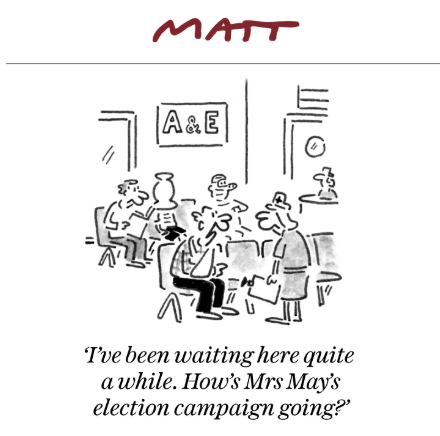- Charlotte Street Partners

- Nov 15, 2019
- 5 min read
15th November 2019
Written by Javier Maquieira, Associate
Edited by Laura Hamilton, Managing Partner
Good morning,
Annual general elections seem to be in vogue. Even for some democracies, like Spain, two votes per year doesn’t appear to be enough. But the situation in Bolivia, where the week kicked off with president Evo Morales fleeing the country and has ended with opposition senator Jeanine Áñez declaring herself interim president, is quite different. Morales became Bolivia’s first president of indigenous origin in 2006, winning re-election twice before a disputed election last month, when the president-elect apparently avoided a run-off against his closest rival and a report allegedly found widespread evidence of manipulations. The aftermath of the vote saw weeks of increasingly violent protests and a civil strike that eventually led Morales to call a fresh election. As cabinet ministers and party members kept resigning, the armed forces urged the Bolivian president to quit altogether. Morales finally stood down on Sunday, claiming that he had been the victim of a coup and had done so willingly “so there would be no more bloodshed.” The next day, Bolivia’s leader for nearly 14 years was on an aeroplane to seek asylum in Mexico. Since the country’s vice-president, the leader of the senate, and the leader of the chamber of deputies have all resigned, Áñez, who is the deputy leader of the senate and next in line to take power, assumed interim leadership on Tuesday with the backing of the Constitutional Court. She has promised to call an election with the hope of having a new president in place by 22 January 2020. Morales still considers himself president of Bolivia, qualifying Áñez as a “coup-mongering right-wing senator.” Supporters of the exiled Bolivian leader have refused to recognise the legitimacy of Áñez’s ascension, clashing with riot police on streets across the country. Meanwhile, the interim president told a news conference yesterday that “Evo Morales does not qualify to run for a fourth term.” Bolivia now faces further polarisation and a political limbo that will prove difficult to resolve in the short term. Although the United States, the United Kingdom, Colombia, Brazil and other conservative governments in Latin America have recognised the right-wing opposition senator, unrest in the South American country isn’t likely to deescalate any time soon.
News
Home secretary Priti Patel said the Conservatives will seek to reduce “immigration overall” after Brexit if they win the general election. The prime minister, Boris Johnson, added that he is “pro-immigration for talented people, but also in favour of control.” With the Labour party yet to announce its policy, Jeremy Corbyn has committed to “a fair immigration process” that recognises the contribution of migrant workers. Labour has pledged to give every home and business in the UK free broadband by 2030 if it wins the December general election. In an interview with the BBC, shadow chancellor John McDonnell said that the party would seek to nationalise part of BT to deliver on its promise and introduce a tax on big tech companies to support the policy. The outgoing president of the European Council, Donald Tusk, gave an implicit message to Boris Johnson’s opponents encouraging them to keep fighting to stop Brexit. Reflecting on his five-year mandate during a speech at the College of Europe, Tusk’s comments mark an inflection point from the policy of EU chiefs not to get drawn into domestic political debates.
Business and economy
The world’s largest sovereign wealth fund has decided to pull out of the UK-listed security company G4S as it poses a risk to its ethical position on human rights. Norway’s £860bn fund, which owned a 2.3% in the firm, revealed its decision to G4S in April following the company’s operations in Qatar and the United Arab Emirates. Australian airline Qantas has broken a new world record after completing the second of its three experimental ultra-long-haul flights. Carrying about 50 passengers on a brand-new Boeing 787-9 Dreamliner, it connected the cities of London and Sydney in a nonstop research flight taking 19 hours and 19 minutes in the air. This set of experimental flights, known as "Project Sunrise", is part of Qantas’ goal to introduce direct Sydney-London and Sydney-New York return services by 2022. The EU’s financing department, the European Investment Bank (EIB), plans to stop funding oil, gas, and coal projects at the end of 2021 following lobbying by EU member states. The EIB, which has funded €13.4bn of fossil fuel projects, will cut €2bn of yearly investments for projects that cannot prove the use of “new technologies” such as carbon capture and storage.
Markets
What happened yesterday?
London stocks closed in the red on Thursday after the release of disappointing retail sales data. The FTSE 100 closed down 0.8% at 7,292.76, while the pound was stronger both against the US dollar by 0.26% at $1.2885 and versus the euro by 0.21% at €1.1699. Retail sales dipped 0.1% on the month missing expectations for a 0.2%. On the year, sales were up 3.1% in October but below expectations for a 3.7% jump, marking the lowest growth since April 2018. FirstGroup (-20.34%) dropped as it said losses in the first half had widened. Sainsbury's (-0.69%), GlaxoSmithKline (-2.2%), Royal Dutch Shell (-1.76%), Bunzl (-1.27%), and Marks & Spencer (-1.46%) were all lower, as their stocks went ex-dividend. On the upside, fashion firm Burberry finished 3.35% higher after it posted a jump in interim profit and revenue despite "considerable" disruptions in Hong Kong.
What's happening today?
Finals
Future
AGMs
Adamas Fin Berkeley Eng Kier
Intl. economic announcements
(10:00) Balance of Trade (EU) (10:00) Consumer Price Index (EU) (13:30) Retail Sales (US) (13:30) Import and Export Price Indices (US) (14:15) Industrial Production (US) (14:15) Capacity Utilisation (US) (15:00) Business Inventories (US)

Columns of note
Gary Younge warns in The Guardian against what he calls the naked right-wing partisanship of the British press, whose persistent power is having an important effect in Britain’s politics. Younge denounces that readers are not immune to the misinformation and bias of conservative media and calls on the left to circumnavigate its power. He concludes on a positive note, mentioning the opportunity brought by new technology, social media, and grassroots campaigning to create the capacity to challenge preconceptions and lower the barriers of publication and distribution. Writing in The Times, Philip Collins argues that “immigration” as a political question is about more than the presence of immigrants. While he concedes that the proportion of non-UK nationals working in the UK has risen rapidly, Collins adds that it would be dishonest to imply, as the Tories consistently have, that immigration is likely to stop, especially after Brexit, when the country is going to be asking people to come. Finally, Collins proposes that those with a record of employment contribution receive higher payments than those without so as to prevent the mistaken fear that “immigrants” are getting a better deal from the welfare state. (£)

Did you know?
The font Comic Sans was designed by a man named Vincent Connare in 1995. In 2017, he said he only used it once.
Parliamentary highlights
TODAY House of Commons No business scheduled House of Lords No business scheduled Scottish Parliament No business scheduled

Comments